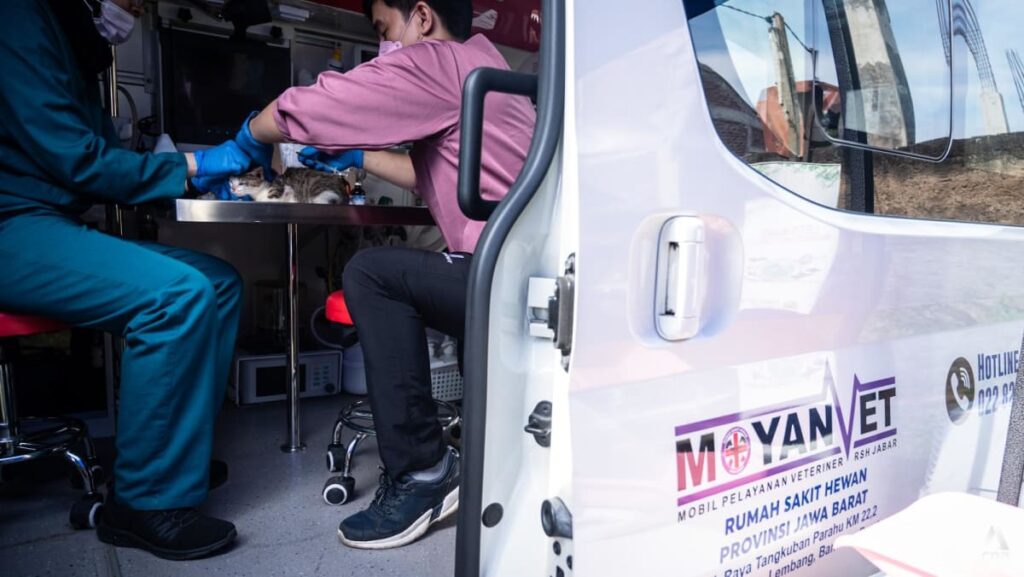JAKARTA: When Lusiana discovered that a free rabies vaccination event was being held at a cultural centre about a kilometre from her home, the East Jakarta resident was excited.
Her cat, Bono, had been vomiting and acting lethargic for days and the 74-year-old widow was hoping that the veterinarians present at the event might provide some answers.
The private animal clinics near her home are too expensive while Jakarta’s only government-run clinic, located some 28km away on the other side of the city, is too far for the ageing retiree.
“It would have taken me one-and-a-half hours one way to get to the (government-run) clinic by bus. In fact, it’s so far away I’m not even sure which bus I should take to get there,” Lusiana, who like many Indonesians goes by one name, told CNA.
Located near the city’s southern limit, the Jakarta Animal Health Centre is the only place in the sprawling metropolis of 11 million inhabitants which provides subsidised healthcare for animals and thus holds special importance for pet owners like Lusiana.
Prices at privately-run clinics can be two to four times more expensive than at the health centre.
For example, the health centre charges 70,000 rupiah (US$4) for every health consultation session while private ones typically charge between 150,000 and 250,000 rupiah per session.
Meanwhile, male neutering costs between 200,000 and 350,000 rupiah at the health centre, depending on the size of the animal, while prices at private clinics vary between 400,000 and 1 million rupiah.
To compensate for the centre’s remoteness, the city has been staging outreach programmes where veterinarians and city officials visit one Jakarta community after the other, including the rabies event which Lusiana attended on Jun 10.
Read the full article here
